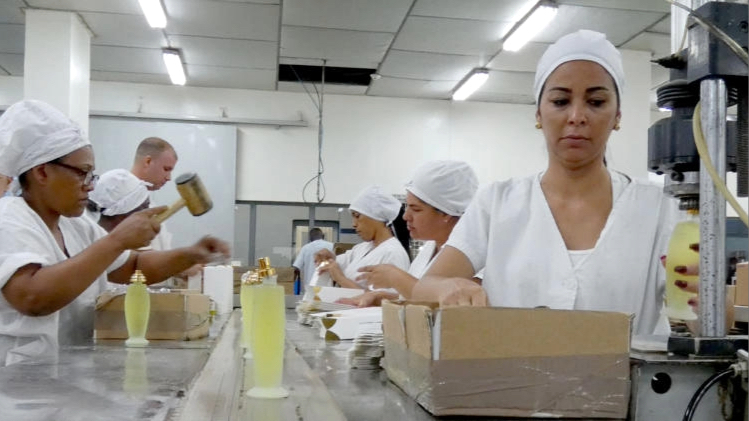After six and a half decades of triumphant revolution, the main newspaper of the Cuban capital still deems it fit to announce that "washing soap is assured for the patients of the prostrate and incontinent program. In addition, two bars of soap will be distributed to children under two years of age, one to people in vulnerable situations, and to the entire population, according to family unit..."
In the midst of this stenchy situation, Suchel Camacho’s president, Yaney Cisneros, has stated that the Government has devised "new formulas" to sanitize the country again with national products: to sell dollars to her company at less than half the market value of that currency; in other words, to subsidize Suchel Camacho.
After 65 years of bankrolling a disaster, the new plan is to subsidize more, but now calling it a "special financing scheme" and doing so through the foreign exchange market. Let no one say that Cuba is not transforming itself.
During the last session of the National Assembly of Popular Power, Díaz-Canel announced that through this financing scheme more than 110 million dollars have been channeled to the business system —a pathetically insignificant figure for most countries in the world, but extraordinary in an economy that in six months was only able to generate just 1.28 billion dollars, of which 1 billion went directly to food imports.
Not matter what euphemism they use to feel more sophisticated and modern, introducing preferential exchange rates for some companies is no different from making direct transfers from the State budget, in Fidel's Stalinist style, with the aggravating factor that the useless national money is not being misused, but rather the few dollars available, and not to satisfy the needs of the people, but to sustain an economically unviable system.
As a method for allocating resources, subsidies are rarely an ideal option and, of course, they are never the only one. Resorting to them constantly, and in general, as Castroism does, reveals the imbalances racking the Cuban economy; centrally planned, limited, constrained and intervened, it is always at the service of the Government and never at that of the forces of supply and demand, disconnected from both the people?s capacities and their needs.
In a system designed so that there is no business competition, subsidies are a way of decapitalizing society, leaving it without options by preventing it from saving and deciding on the resources the country generates. The capital available, instead of remaining in the hands of those who produce it (as endorsed by Marxism) automatically passes into those of the Government, which, for the "good" of all, distributes it, professedly practicing social justice ? a widespread euphemism for, as John Stuart Mill explained, disguising as something just and useful what is really a compulsory economic redistribution contrary to the general interest.
This "new financing formula" is not so new: Suchel Camacho has been subsidized for two years with this scheme; two years during which this heroic socialist state enterprise has managed to produce 296,000 units of shampoo, 275,000 of conditioner, 2,000 of deodorant, two million of soap, 241,000 of toothpaste, and 159,000 of cologne.
This production amounts to the following: one bottle of shampoo per month for every 891 Cubans, one bottle of conditioner per month for every 956 Cubans, one deodorant per month for every 132,530 Cubans, one roll of toothpaste per month for every 1,100 Cubans, one bar of soap per month for every 132 Cubans, and one bottle of cologne per month for every 1,660 Cubans. One can now understand why buses smell the way they do in Cuba. One deodorant per month for every 132,000 people is what the Revolution has managed to produce!
Such reeking misery is the result of the fact that subsidies in Cuba are not a mechanism to promote growth, as was unsuccessfully attempted in Argentina or India, or successfully achieved in South Korea or Singapore. Rather, they are a mechanism to perpetuate misery in an extractivist system always quick to quash any institution, formal or informal, that might serve to strengthen civil society; hence the naivety of believing that MSMEs might empower a sector that could eventually stand up politically to the regime.
The fact that Castroism, after 65 years of a failed policy, chooses to subsidize rather than open the market to private competition in an area of such little interest to national security (we are talking about soaps and deodorants, not oil or nickel) makes it clear that, although on the surface the system appears to be changing, the essence remains the same and, unfortunately, the government has no real plans to resolve the causes of the growing penury in Cuban society, and that really stinks.
